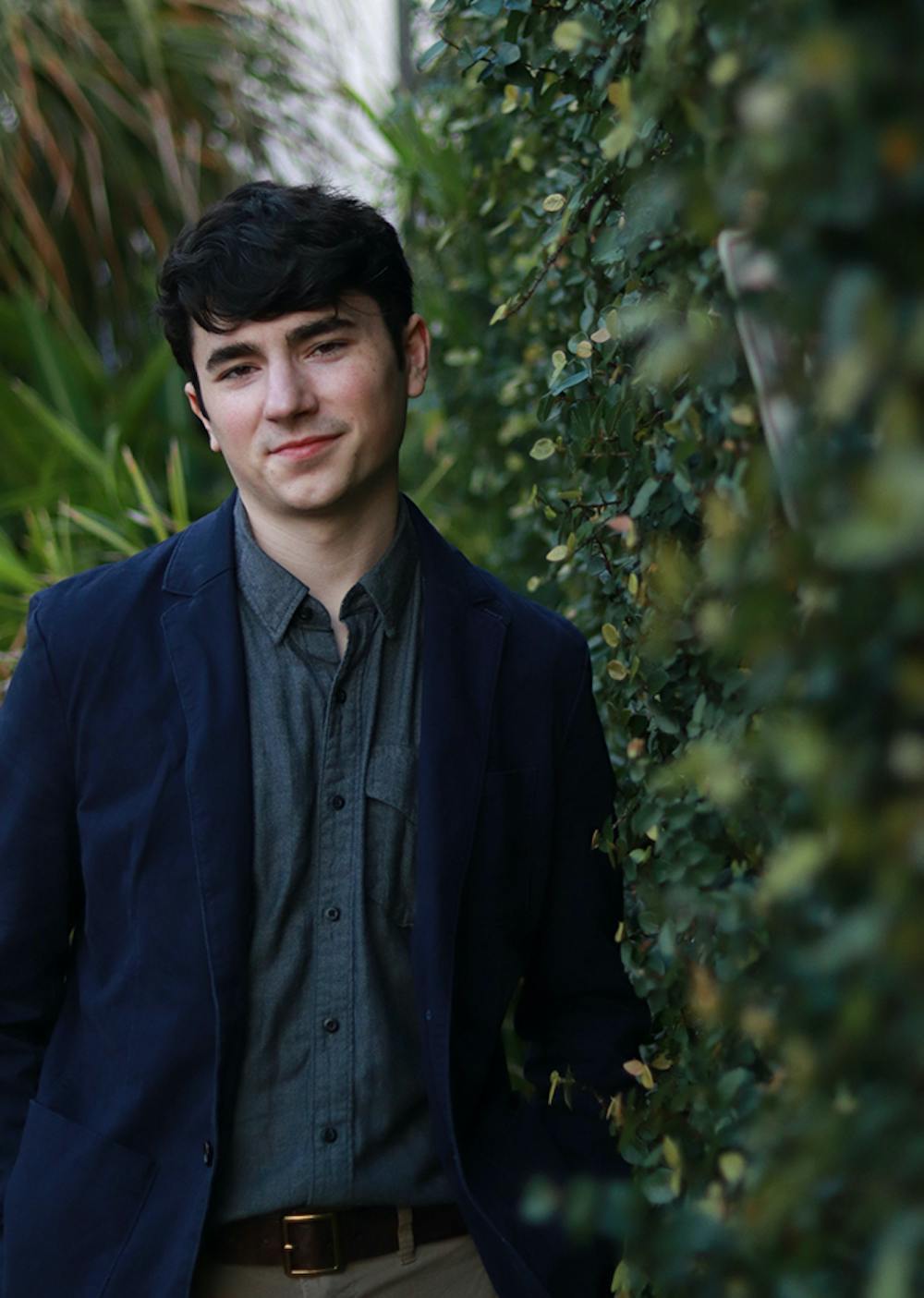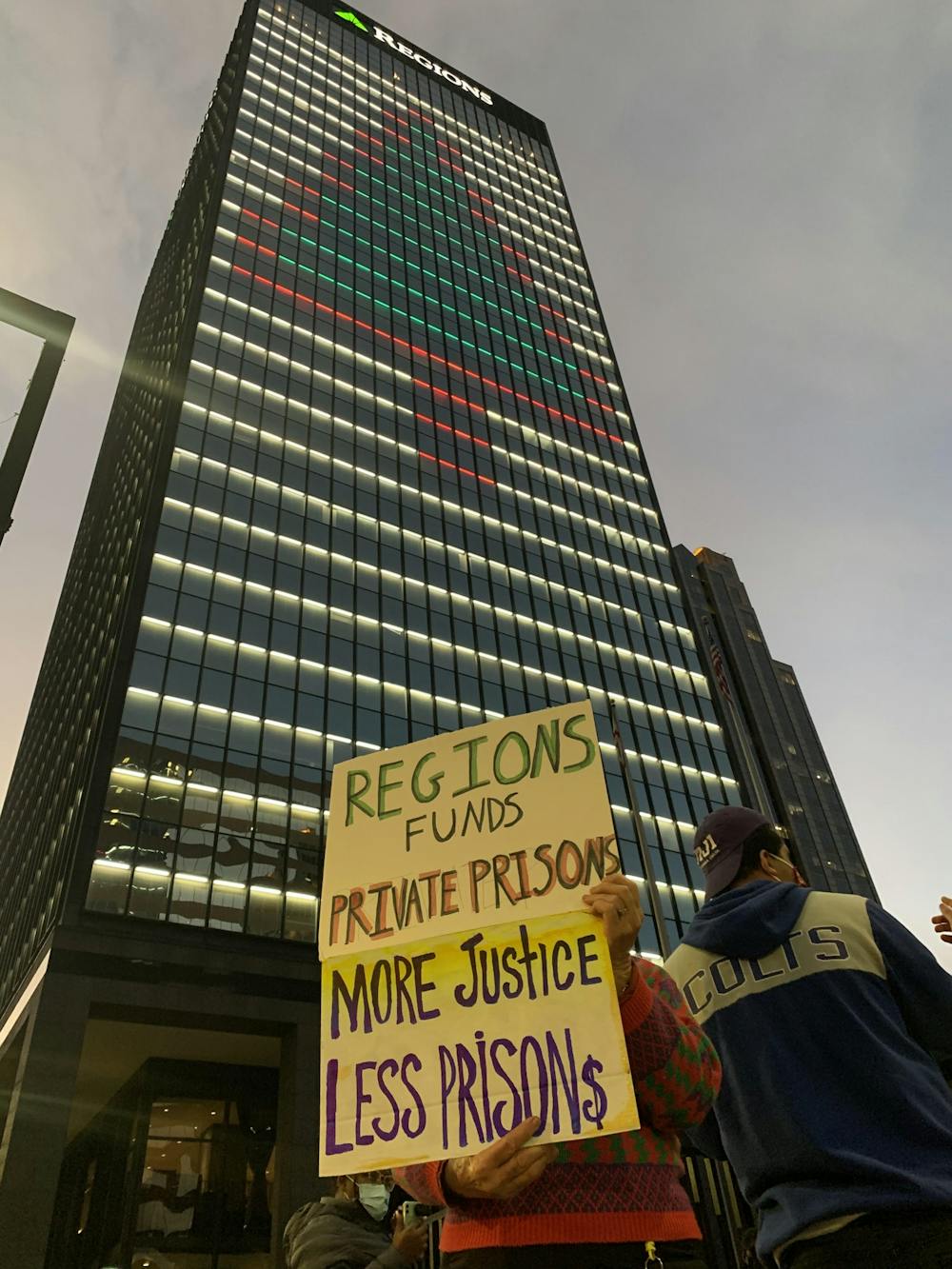In September 2020, Gov. Kay Ivey announced potential sites for three new privately owned prisons across the state. Three months later, in December 2020, the Department of Justice filed a lawsuit against the state of Alabama, claiming Alabama’s prisons for men do not protect the incarcerated from violence and sexual abuse, do not provide safe and sanitary conditions and subjects incarcerated people to excessive force from prison staff, violating their constitutional protection against cruel and unusual punishment.
It was also December when a group of student activists across Alabama — including two Auburn students — came together on a Zoom call and decided to form a student group to protest the development plans: Alabama Students Against Prisons.
“We have a unique crisis in Alabama,” said Morgan Duckett, senior in industrial design.
According to the Equal Justice Institute, Alabama prisons are “the deadliest in the nation,” with a mortality rate that has become twice the national average for incarcerated people in the last 12 years. The facilities are also operating at 167.8% of design capacity, per Bureau of Justice Statistics.
In a report from April 2019, the DOJ found that the severe understaffing of prison facilities fails to protect incarcerated individuals and correctional staff from violence, sexual assault and abuse.
“The DOJ lawsuit was very clear in saying that you cannot build your way out of this crisis,” said Hannah Krawcyzk, senior in public administration. “We know that three buildings are not going to change the lack of care and neglect that occurs inside of Alabama Department of Corrections facilities.”
Though these prisons would be operated by ADOC, the facilities would be privately owned. Two of the proposed facilities would be owned by CoreCivic and the third by Alabama Prison Transformation Partners. Alabama Political Reporter called this company “a public mystery with no records of its existence beyond the governor’s announcement” when Ivey announced the companies bidding for prison contracts in September 2019.
“These companies would design, build and own the facilities and they’ll own the land that they’re built on,” Duckett said. “Then the state will lease from them for at least 30 years and at the end of this lease, where it is estimated we’ll pay between $2.5 to $3 billion, we’ll own nothing. The state owns absolutely nothing.”
These private prisons would not be an addition to the system, but rather a replacement. The Ivey administration stated that the money saved from closing aging prisons and consolidating operations would cover the costs of construction, but activists like the students of ASAP want meaningful reform, like the repealing of the Habitual Felony Offender Act.
“It’s basically Alabama’s three-strikes law,” Krawcyzk said.
On Jan. 9, ASAP held a virtual protest on Zoom and invited various speakers to share how private prison development is wrong for Alabama. The panelists included decarceration activists, formerly incarcerated people, local organizers and environmentalists.
“We don’t know what’s going to be the final nail that stops this plan,” Duckett said. “It may be some endangered species that the federal government is like, ‘Nope, sorry, you can’t build on this land.”
Some arguments against the prison development may not appeal to morality at all, Duckett said, but they are making sure to include everyone and every perspective they can while placing emphasis on those who are most affected by prisons: Black Alabamians. While they make up less than a quarter of the state’s population, Black people make up over half of the prison and jail population.
During the virtual protest, David Zell, a student at the University of Alabama, referenced the momentum generated by protests in Alabama during the civil rights era in a speech to his fellow organizers.
“I think that comparison comes because, yeah, absolutely this has national implications,” Duckett said. “I mean, there are states across the country that have outlawed private prisons. It’s not new at all.”
President-elect Joe Biden’s campaign website claims his administration will end all federal contracts with private prisons. Duckett said it makes no sense for the state of Alabama to invest in a private prison industry.
“If the moral arc of the universe does bend towards justice, this is a bad investment,” Duckett said.
Do you like this story? The Plainsman doesn't accept money from tuition or student fees, and we don't charge a subscription fee. But you can donate to support The Plainsman.

Trice Brown, junior in english language arts education, is the enterprise editor of The Auburn Plainsman.
trice@auburn.edu





